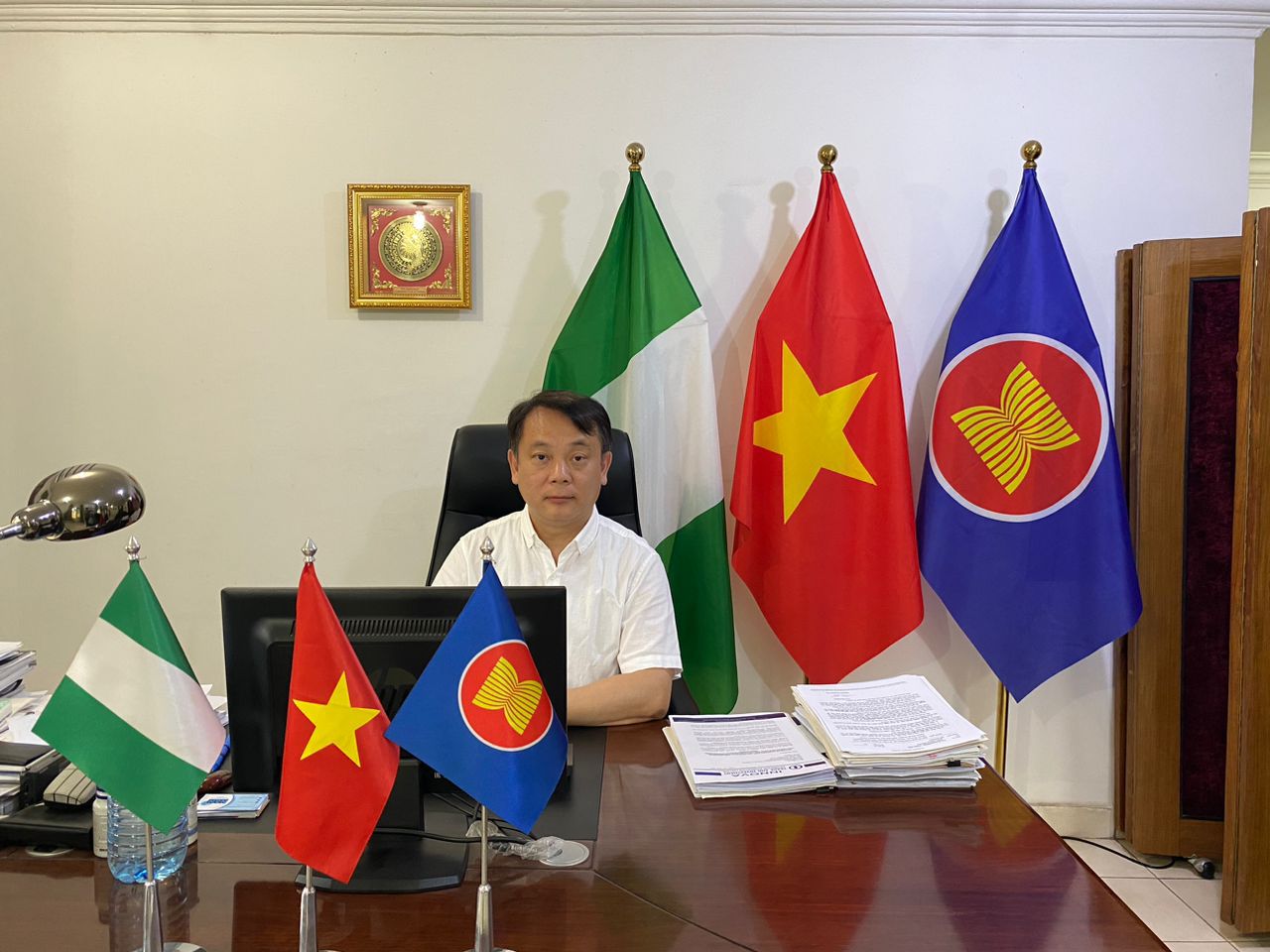News
Vietnamese Ambassador to Nigeria Discusses Administrative Restructuring and Governance Reform in Exclusive Interview

Abuja, July 4, 2025 – Mr. Bui Quoc Hung, the Vietnamese Ambassador to Nigeria during an exclusive interview with newsmen, provided insights into Vietnam’s ongoing administrative restructuring and its potential impact on governance reform in developing countries, particularly in Africa.
The ambassador announced that the Vietnamese government is implementing a significant nationwide plan designed to streamline its governance system by merging and reorganising administrative units at both provincial and commune levels. This announcement was made on Monday in Ho Chi Minh
City.
Ambassador Hung detailed how these reforms are a direct result of the passage of Resolution No. 202/2025/QH15, signed by National Assembly Chairman Tran Thanh Man on June 12, which officially reduces the number of provincial-level administrative units from 63 to 34.
This new structure comprises 28 provinces and 6 centrally-administered cities.
“In the 23 provinces and cities undergoing mergers, local Party Committees, People’s Councils, People’s Committees, and Vietnam Fatherland Front Committees held ceremonies to announce both central and local decisions regarding the dissolution and consolidation of district and commune-level units,” he explained.
Meanwhile, 11 provinces not facing mergers convened to announce National Assembly resolutions related to their administrative reorganisation.
He also highlighted that the restructuring involves establishing new commune-level Party Committees and appointing key leadership positions. “According to Instruction No. 31-HD/BTCTW issued by the Party Central Committee’s Organisation Commission, provincial and municipal Party secretaries have been appointed to lead these new structures,” the ambassador stated. The Organisation Commission is currently reviewing proposals from the newly formed provincial Party Committees and will submit final recommendations to the Politburo by mid-September, with all key appointments expected to be finalized by September 15, 2025.
While the transition officially begins on July 1, existing local authorities will remain in place to ensure continuity in public services. “Once operational, the new structures are expected to enhance administrative efficiency, reduce redundancy, and improve public governance across Vietnam,” he noted.
When asked about lessons Vietnam could share with countries like Nigeria, Ambassador Hung stressed the importance of “national unity and consensus, leadership and commitment.” He pointed out that successful development relies on eliminating bureaucracy, minimizing delays, and avoiding wasted time. “These elements are critical for other developing nations facing similar challenges,” he added.
As Vietnam navigates the process of merging 23 provinces and cities and establishing new Party Committees, there are concerns regarding political stability and leadership continuity. However, the ambassador assured that “the Party and Government of Vietnam has carefully mapped out the plan” and emphasized the strong public support for these reforms. “We are doing our best in terms of administrative and logistics arrangements to ensure a smooth transition and effective operations,” he concluded.
With the July 1 deadline for the newly formed local authorities approaching, Ambassador Hung outlined the mechanisms in place for monitoring and evaluation. “Departments and organisations have been assigned by the Party and Government to oversee, evaluate, support, and adjust as needed to ensure the success of the reform,” he stated, expressing strong confidence in the initiative’s potential.
The insights shared by Ambassador Hung shed light on Vietnam’s proactive approach to governance reform and highlight the potential collaborative avenues between Vietnam and African nations to enhance administrative efficacy and political stability.